The City Palace is one of the things to do in Jaipur. This former royal residence, which was the home of a king in the early 1700s, now houses a museum and the royal family. You can visit the palace complex, which includes several buildings and courtyards. A regular ticket to the Palace costs 700 Indian rupees and gives you access to Pritam Niwas Chowk and Sarvat Bhandari courtyards. You can also visit the Peacock Gate, which represents the autumn season and is dedicated to Lord Vishnu.
1. Amer Fort 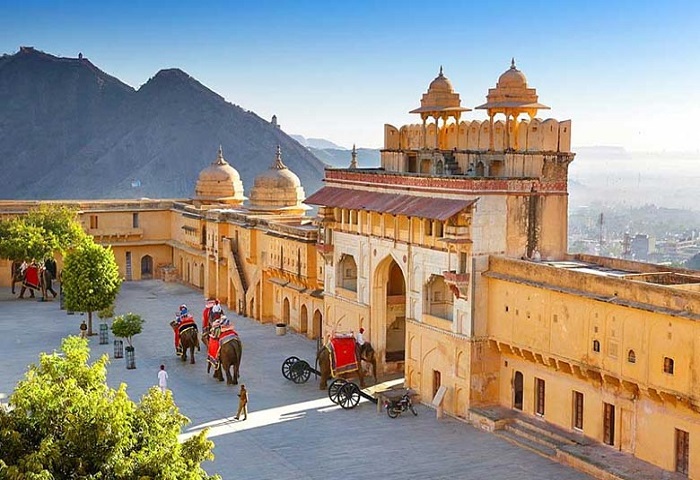
Amer Fort is a fort located in Amer, Rajasthan. Amer is a town in the state of Rajasthan, about 11 km from Jaipur. Amer Fort was constructed by Raja Man Singh and later added to by Sawai Jai Singh. Today, the Fort has been converted into a museum, where you can learn about the fort’s history. Read on to find out how you can visit this fort and its history.
The fort consists of four parts, each with its own entrance. The main entrance to the fort is known as the Suraj Pol, which is also the name of the main courtyard. One of the courtyards is Jaleb Chowk, which contains a beautiful temple dedicated to Sila Devi. The second courtyard is home to the Diwan-i-Aam, Sheesh Mahal, and the Magic Flower.
The UNESCO World Heritage site in Rajasthan has many magnificent forts and palaces. These forts demonstrate the power of the ruling royal families. In fact, many of the forts in this region are UNESCO world heritage sites. The Amer fort is a prime example of this, located in the town of Amer. It’s spread over a spectacular landscape, making it easy to see why it’s known as the “Amber Fort.”
The bus AC-5 takes you to Amer Fort from Johari Bazaar. It takes approximately 40 minutes to reach the fort. However, if you’d prefer to take a taxi, be sure to book in advance. Taxis and tuktuks wait outside the fort. Once inside, you can enjoy the show. You can also enjoy a fancy dinner if you wish. When visiting Jaipur, make sure to check out the Amer fort and explore the city.
2. The City Palace 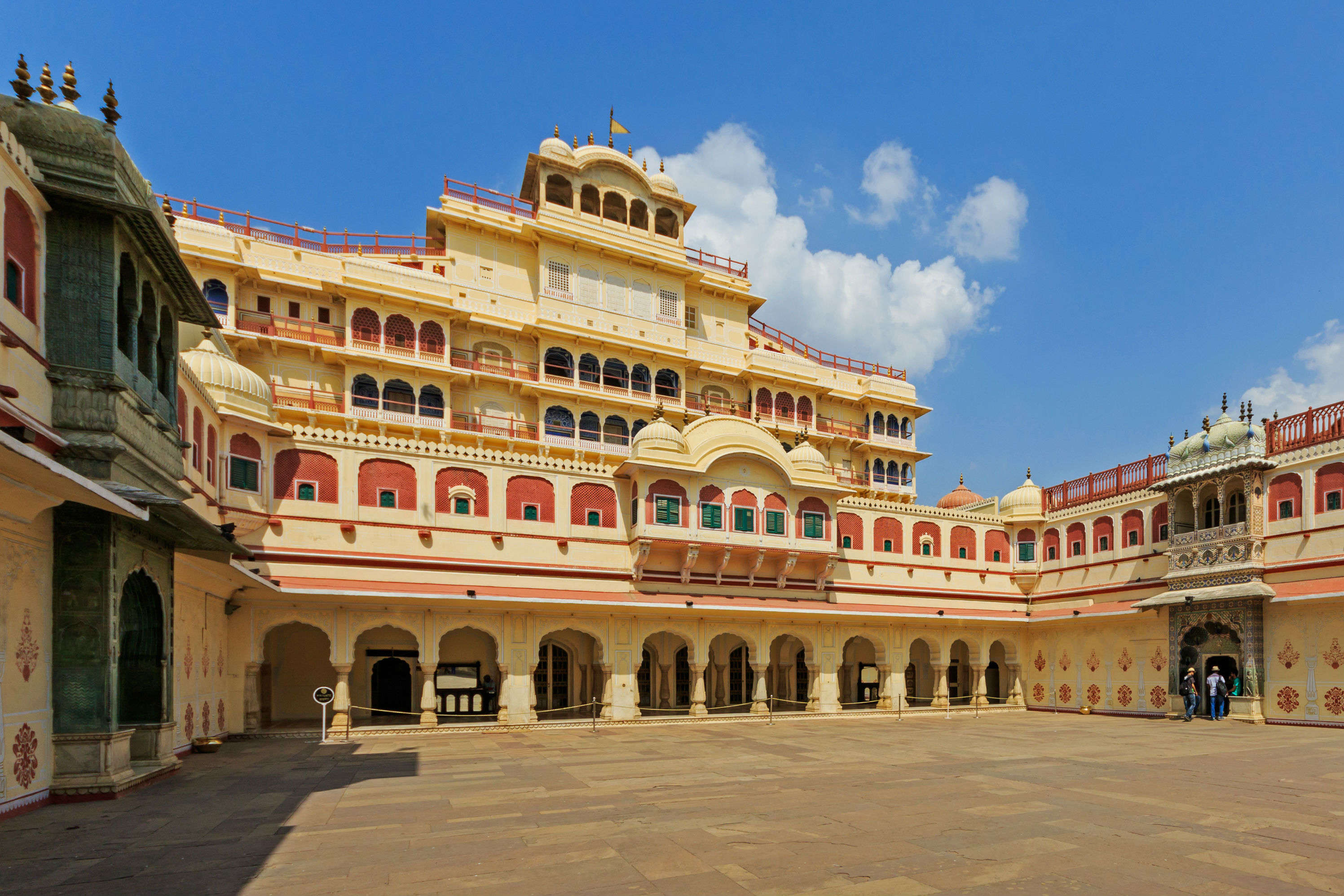
The City Palace Jaipur was built around the same time as the city of Jaipur. Maharaja Sawai Jai Singh II first moved his court to Jaipur from Amber in 1727. Afterwards, other rulers also moved their courts to Jaipur. But before this historic move, the city was not yet a full-fledged royal city. To celebrate his upcoming jubilee, Sawai Jai Singh II constructed the City Palace Jaipur. Book Maharajas Express
The City Palace Jaipur is an excellent place to spend a day or two. The palace is handicapped-friendly, and audio guides are available in various languages. There are also museums within the palace that showcase the talent of local artists and sell handicrafts. The palace is accessible to visitors with disabilities and is closed to photography and videography in some areas. In order to enjoy the Palace to the fullest, the best time to visit Jaipur is during the autumn and winter seasons.
The Diwan-I-Aam is the most prominent building of the Palace complex. The hall features double rows of marble columns and scalloped arches. The gallery, which used to be the Maharaja’s private room, is decorated with paintings and gold leaf work. On the top floor of the Palace is the Mukut Mandir pavilion, where the state flag of Jaipur is unfurled every day. It’s a magnificent sight!
Suggested Tour Packages
- Delhi Tour Packages
- Agra Tour Packages
- Jaipur Tour Packages
- Taj Mahal Tour Packages
- Rajasthan Tour Packages
- Golden Triangle Tour Packages
3. Central Park 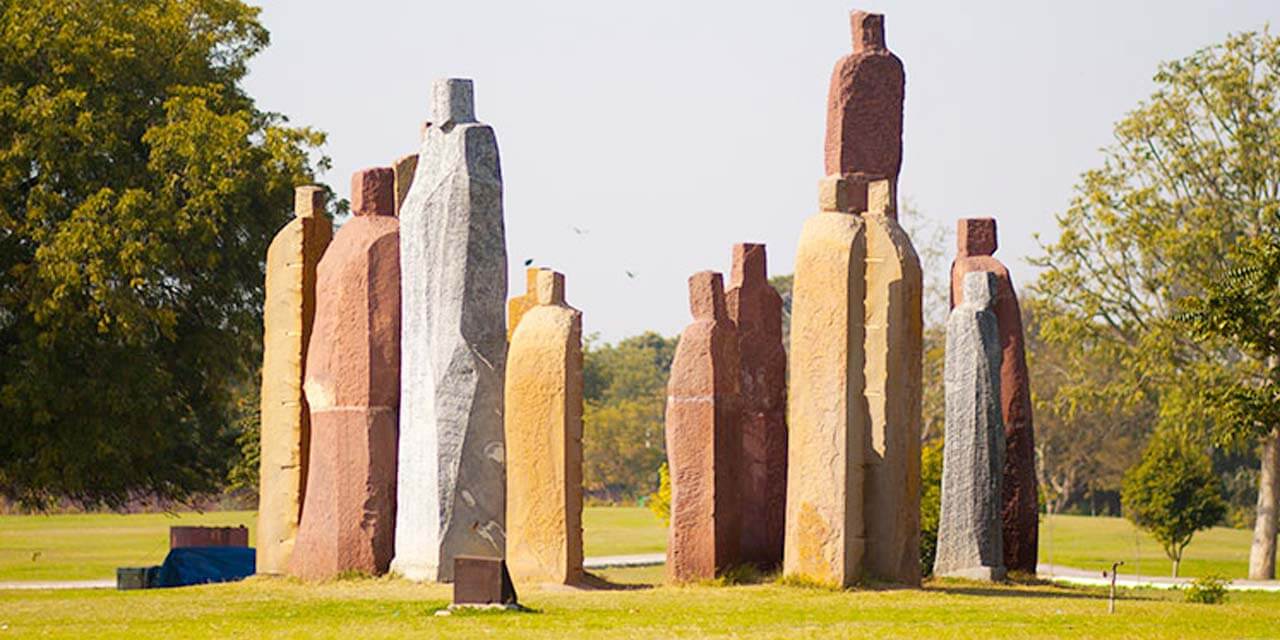
The Central Park in Jaipur is a famous landmark in the city. It was built by the Jaipur Development Authority and inaugurated by the then chief minister of Rajasthan Vasundhara Raje on 21 January 2006. The park houses an M.P. Birla auditorium and a planetarium, which was initiated by Pandit Jawaharlal Nehru in July 1963. In addition to the Central Park, Jaipur is also famous for its numerous other parks.
The park is located in the heart of the Pink city and is home to numerous attractions, including the Rambagh Polo Ground, a golf club, and a 5 km jogging track. Among these, the park is also a birdwatcher’s paradise. The park also boasts of the tallest tricolor in the country and a musical fountain. There is a lot to see at Central Park Jaipur, including a magnificent musical fountain, stone states, and a golf course.
The central park is a popular destination for runners, with two jogging tracks and a jogging track, and many people come to the park to practice their sport. A 5km-long jogging track and a yoga studio are also popular in the park. It’s possible to walk to these attractions on foot, and the park’s free parking area means you can visit it as many times as you’d like without incurring any fees.
4. Jantar Mantar 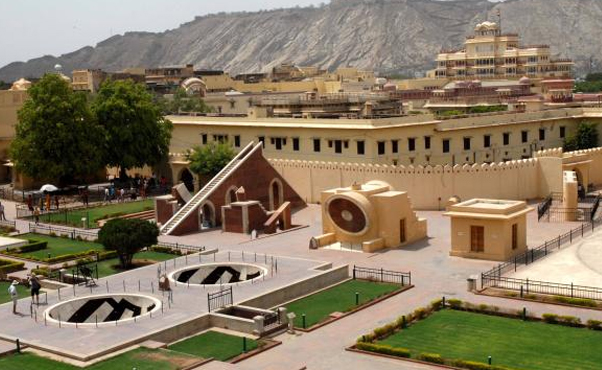
The collection of 19 astronomical instruments, Jantar Mantar, was constructed by Rajput king Sawai Jai Singh II and was completed in 1734. The observatory features the largest stone sundial in the world and is a UNESCO World Heritage Site. Located near the Hawa Mahal and City Palace, Jantar Mantar is an excellent place to learn about the sky and its constellations.
The best part about this historical site is the light and sound show. You can enjoy this show by standing next to a large mirror. This stunning piece of artwork is made of marble and stone. Marble is found in abundance in Rajasthan, making it a popular material for sculpting the monument. However, the Jantar Mantar is not the only place that has these amazing displays. If you visit the site, be sure to bring appropriate clothing, including layers.
A visit to Jantar Mantar in Jaipur is an excellent way to explore the city’s history and culture. As one of the largest observatories in history, it showcased the methods of reading the stars and measuring time. This is still an undiscovered gem in the city of Jaipur. So, if you’re a history buff, this is the perfect place to see how Jaipur’s capital was influenced by the ancient civilizations of the world.
5. Hawa Mahal 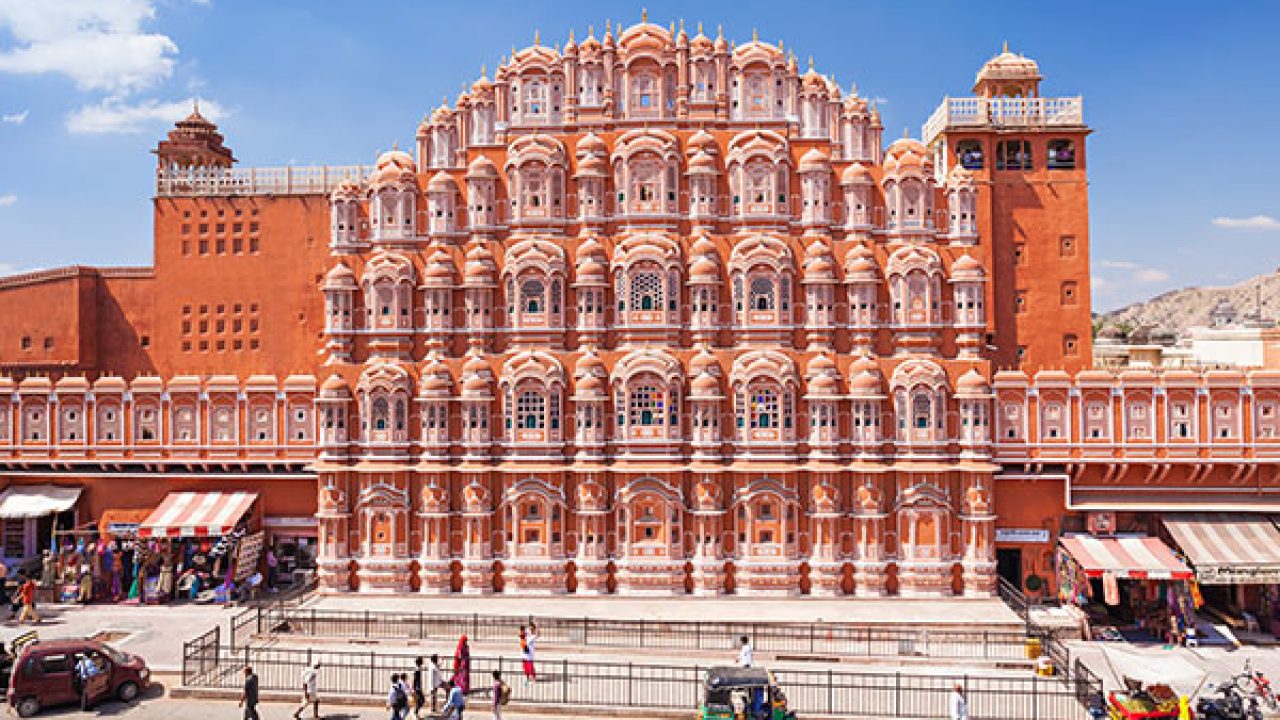
The Hawa Mahal in Jaipur, India is a palace built in the 17th century for a queen. The palace, which is constructed entirely of red and pink sandstone, sits on the edge of the City Palace and extends to the women’s chambers known as the Zenana. Its intricate design and unique style make it a must-see destination. Read on for more information about this incredible palace.
If you’re traveling by car, you can find comfortable cabs from three of the best car rental companies in Jaipur. There are also tuk-tuks (auto rickshaws), which are very affordable and can be hired at the railway station. When you’re in the area, make sure to walk to the Hawa Mahal. This is an excellent way to learn more about the royal lifestyle and the intricate structure of the palace.
When you visit the Hawa Mahal, you can enjoy the spectacular views of the Amber Fort and the City Palace from its rooftop. The Hawa Mahal was remodeled in 1876 and its exterior walls were painted a vivid pink. Today, Jaipur is known as the “Pink City” and it has retained this name. Its rooftop is a great spot to watch the royal women on a daily basis.
Suggested Tour Itineraries
- Golden Triangle Tour with Rajasthan
- Delhi Agra Jaipur Tour with Mandava
- Rajasthan Cultural Tour with Taj Mahal
- Golden Triangle Tour with Oberoi Hotels
- Golden Triangle Tour with Ajmer & Pushkar
- Golden Triangle Tour with Colourful Rajasthan
- Golden Triangle Tour with Jodhpur and Jaisalmer
6. Ranthambore National Park 
If you’re a wildlife enthusiast, a nature lover, or just want to see tigers in their natural habitat, Ranthambore National Park is a must-see destination. This 400 sq. km park is located at the confluence of the Aravalli and Vindhya mountain ranges. The park was established in 1955 as a game sanctuary, and in 1973 it was declared a tiger reserve. In 1984, the national park was extended to include adjoining forests. The park is best known for its tiger population, which is an incredible sight to see.
Access to the national park is easy and convenient, thanks to its location. It’s conveniently located within Jaipur and is connected to major cities across India and abroad. During the day, the park is open from 6:00am to 6pm. It’s easy to reach Ranthambore by air as well as by car. You can fly into Jaipur from the nearest airports: New Delhi, Agra, and Mumbai. You can also take a train or bus from Jaipur to Sawai Madhopur, which is a 10-minute drive away.
Getting there: To visit Ranthambore National Park, you can take a train from Jaipur or Agra. If you’re flying to Jaipur, you’ll be transferred to the Bharatpur Railway Station, where you’ll board an afternoon express train. Ticket prices start at 1,245 rupees. Once you arrive in Jaipur, you’ll be picked up by a private car, which is fully air-conditioned. The trip will last between four and five hours.
7. Swargasuli Tower 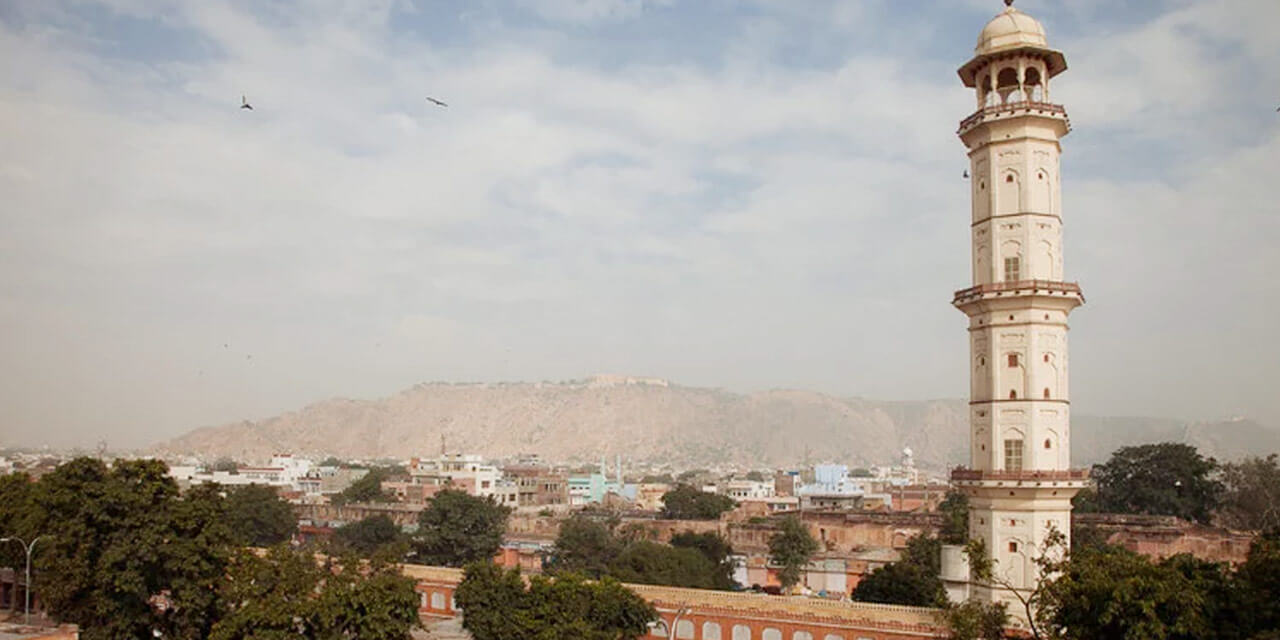
Swargasuli Tower in Jaipur offers panoramic views of the city. Visitors can enjoy the panoramic views from the tower’s 7-story minaret, built in the 18th century. Once they have had a chance to admire the views, they can continue their sightseeing at the city’s Amber Fort. There is a restaurant inside the tower and a gift shop that sells traditional handicrafts.
The Swargasuli Tower is an old tower located in the heart of Jaipur. It was built in 1749 by Maharaja Sawai Ishwari Singh to commemorate a victory over the Mewar and Marathas armies. Its unique architecture and typical lattice work make it an iconic landmark in the city. The tower is an ideal spot to view the city, as the city’s old quarter is within easy reach.
The Sargasuli Tower is a famous landmark in the pink city. It stands 140 feet tall and was built in honor of Maharaja Sawai Ishwari Singh, the founder of Jaipur. Its minaret was inspired by the Qutub Minar in Delhi and the Kirti Stambh in Chittorgarh. It is considered to be the symbol of Jaipur’s victory, and is the perfect place to take a breath-taking view of the city.
For a bird’s eye view of the city, you’ll need to visit the Swargasuli Tower in Jaipol. The view from the top is breathtaking, and you can even enjoy the city’s colorful wares from Bapu Bazaar. The Jantar Mantar observatory and City Palace will provide some artistic shots as well. And if you’re looking for an old-fashioned view, you’ll love the city’s architecture and the regal style.
8. Elephantastic 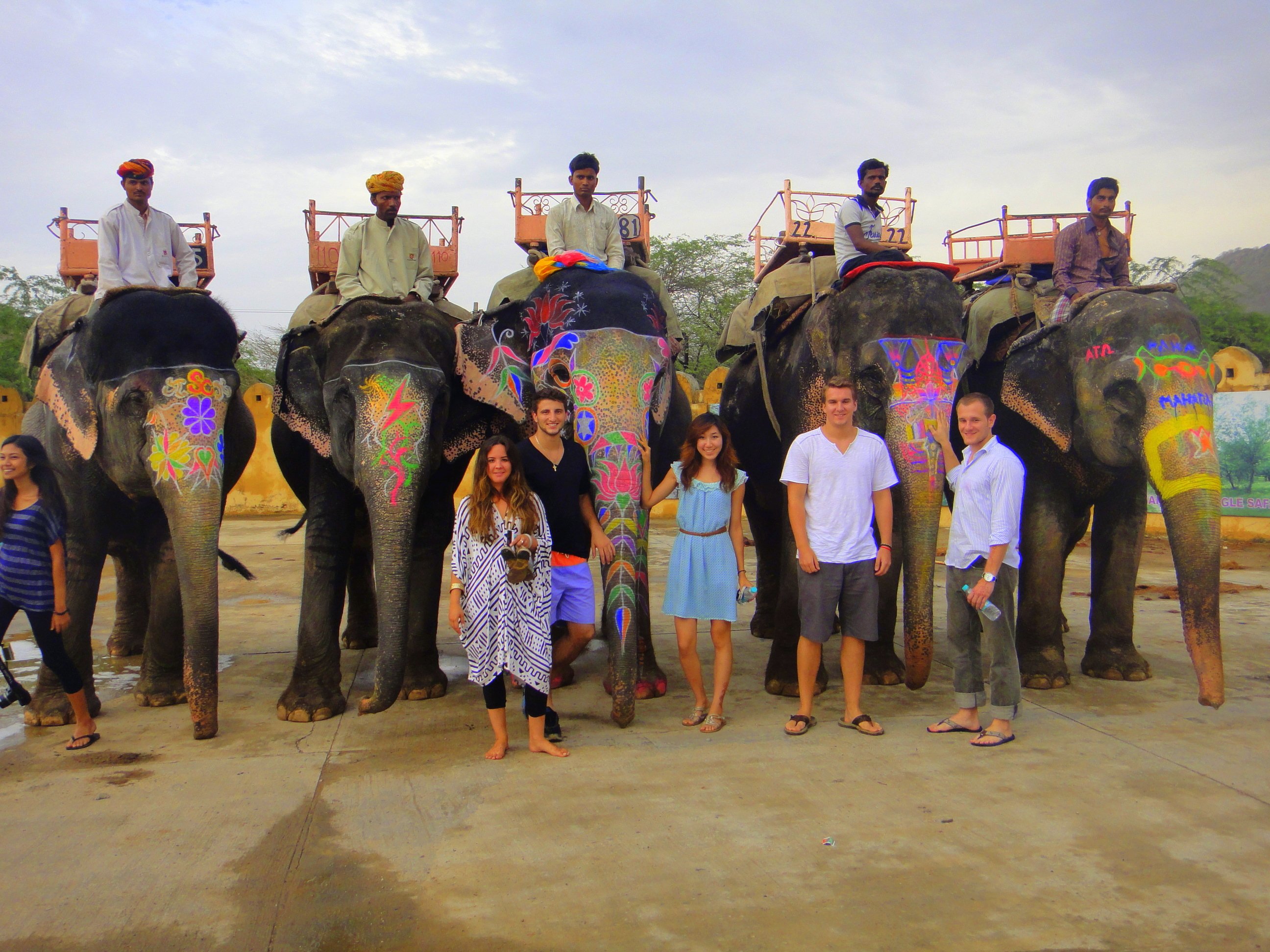
Whether you’re interested in Asia elephants or simply want to feed and walk elephants, an Asian elephant sanctuary will not disappoint. From washing elephants to feeding and walking elephants, the experience is second to none. If you love elephants, you’ll love Elephantastic in Jaipur. You can also experience the sanctuaries’ animal experiences. You can even get to bathe the elephants! You’ll find it truly magical.
While the animals themselves may not be the most fascinating things in the world, visitors will learn a lot about elephants while being entertained by the various rides and games. The elephant farm was originally designed by mahout Rahul Choudhary to become an elephant rehabilitation center and to help low-income families care for their animals. Aside from elephants, the farm also houses different kinds of birds, and there are camping options available for travelers.
The Elephantastic sanctuary in Jaipur is situated on an estate about 25 km from Jaipur. The park’s surroundings are beautiful, with lush green vegetation. Here, you can interact with the happiest elephants in Jaipur. The elephants’ eyes are filled with pure love, and they are amazingly happy. Regardless of the age or gender of your group, you’re sure to leave the park with a smile.
Suggested Tours
- Taste of Rajasthan
- Jaipur Cultural Tour
- Jaipur Tour from Delhi
- Classic Rajasthan Tour
- Off Beat Rajasthan Tour
- Rajasthan Tour 10 Days
- Incredible Rajasthan Tour
- Rajasthan Forts and Palaces Tour
- Splendid Rajasthan Tour with Ranthambore
9. Panna Meena Ka Kund 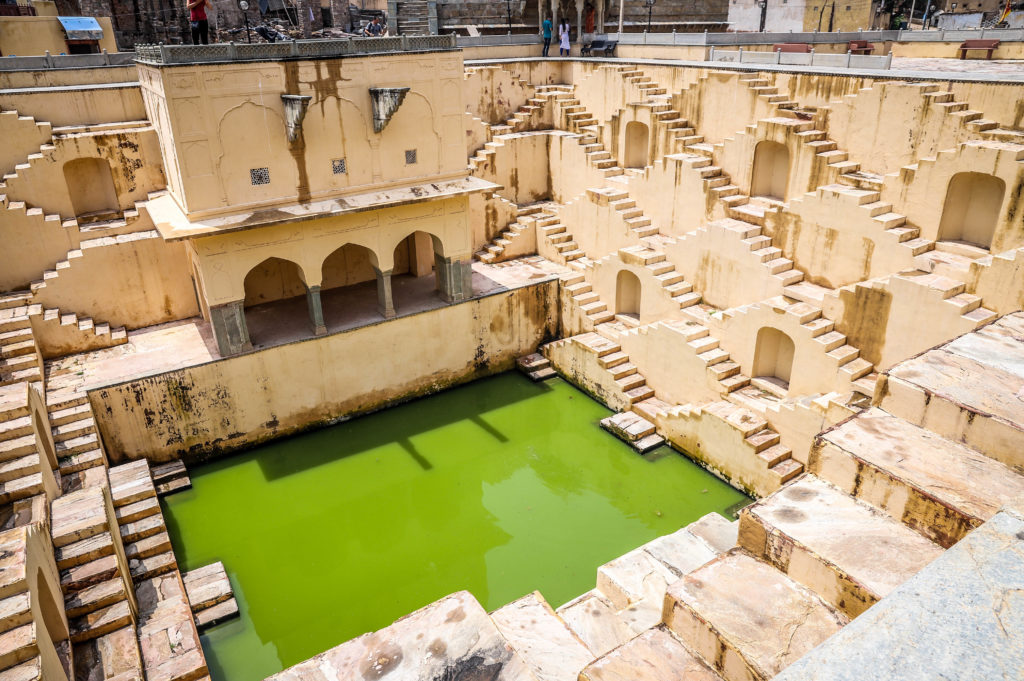
To reach Panna Meena ka Kund, you should first get to the town of Amer, which is located in northwest Jaipur. You can ask for directions from the locals, who will also point out the step well. From the Jaipur Junction Railway Station or the Sindhi Camp bus stand, it takes around 11 minutes by car to reach the step well. Alternatively, you can hire a tuk-tuk to reach the location.
Once a water-protection pool, Panna Meena ka Kund was a social center for the surrounding societies. There were several staircases and a platform for resting and drinking. The step well was designed by a Brahmin and created by craftsmen. The stairwell is particularly impressive due to its symmetrical shape. Once you’ve had a chance to relax, consider taking a tour of this ancient step well.
The kund’s unique construction is impressive. Its eight-story staircase provides access to three levels, with enough space for sitting on the fourth level. Inside, the Panna Meena ka Kund is a stunning example of the use of rainwater in irrigation. Located near the Anokhi Museum, this pool was originally used for social gatherings, but in recent years, many people from nearby areas come here to swim and enjoy the water. During ancient times, it was mainly used as a protective pool for water. In the sixteenth century, it was designed by a Brahmin and built by craftsmen.
To visit Panna Meena ka Kund, you can take a cab to Amer from the city’s central area. The city’s main street, Amer, is easily accessible, and you should get directions to the step well. If you’re unsure about the way, ask a local if they know the location. It’s near the Bihari ji temple.
10. Nahargarh Fort
If you are planning a visit to the city of Jaipur, you should take a look at Nahargarh Fort. This fort stands on the edge of the Aravalli Hills and offers a panoramic view of the city. Once upon a time, the fort formed a protective ring around the city. Today, it is a museum, so you can explore its history and culture.
The fort is a compact structure with a central courtyard and nine self-contained apartments. The buildings are decorated with beautiful frescoes and carved-stone work, which evoke a feeling of lavishness and luxury. A Sculpture Park, which was built inside the fort, showcases the works of eleven Indian and one foreign artist. It’s an amazing place to spend a day or evening!
Located on the edge of the aravali hills, the Nahargarh fort is one of the most majestic forts in the world. The fort was originally known as Sudarshangarh and was built in 1734 to protect the Amer prince. Its extensive walls make it visible from every corner of the city and provide a great view of the city. And while there are many attractions and things to see in Jaipur, the fort itself is worth seeing.
While you’re at the fort, make sure to check out the Sheesh Mahal museum. This museum features real life back grounds for its beautiful sculptures. Admission to the museum is free on some special days. World Heritage Day (April 18) and World Tourism Day (September 27) are both good opportunities to see the fort’s history and culture. The Wax Museum, on the other hand, is another must-see. It displays many well-known personalities and national heroes in life-like replicas. The museum is open till 6:30 PM daily. During evening, professional photographers can take photographs of you for a few rupees.

